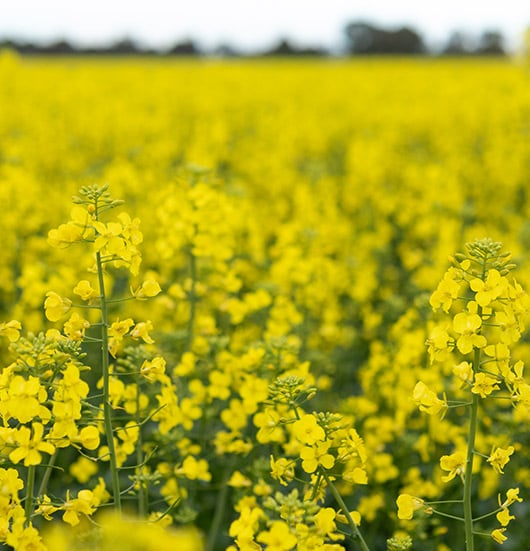ISCC declarations - what farmers need to know ahead of harvest
This blog explores changes to ISCC declarations in relation to the EU renewable energy directive, and what this means for farmers and market access.

Key messages
- Currently, 65-70% of Australian canola is traded into the European Union (EU) biofuels market, which delivers a premium compared to other canola markets.
- To retain access to the EU canola biofuels market, canola farmers must comply with the EU renewable energy directive (RED III), which is now legally binding.
- From 2025, ISCC declarations on traceability and sustainability are made through Sustainable Grain Australia, via the National Grower Registration website
- Sustainability systems and processes are expected to continue to be a feature of markets and can’t be ignored.
We hear a lot about ISCC, sustainability reporting and the declarations that go along with it. But what are the benefits of certification schemes for farmers – and what do farmers need to know about their legal obligations?
Rosemary Richards, from Sustainable Grain Australia (SGA), spoke at the 2025 Riverine Plains In-season Update, covering aspects of the International Sustainability & Carbon Certification (ISCC) system and its role in allowing access to valuable EU canola markets.
Rosemary began by describing how SGA facilitates the sustainability certification of Australian grain, oilseeds and pulses, and how the organisation is working to simplify and standardise the process and reduce audit exposure for farmers, while also improving the efficiency of the certification process for companies.
Why the focus on sustainability, and what’s changed?
Economic, Social and Governance (ESG) reporting requirements for large businesses are becoming increasingly important drivers of sustainable sourcing and this is one of the key drivers for sustainable certification. More and more, markets are being driven by consumer preferences and government policy, so certification can have big impacts on market access, and the price returned to farmers.
For example, compliance with the EU renewable energy directive (RED III) now means that traceability and compliance has become legally enforceable for all participants in the EU biofuels value chain. This includes producers, traders, blenders, and end-users who must all now demonstrate clear documentation linking the physical product to its sustainability claims.
This change to EU RED III is particularly important for farmers to be aware of because the EU biofuels market is the biggest market for Australian canola, accounting for 65-70% of exports. It also trades at a premium to other markets, so it's important that farmers comply with the traceability and sustainability requirements, to maintain market access.
What is ISCC certification?
Certification systems provide assurance to customers about the source and quality of products.
SGA has chosen the ISCC system for certification, which has now expanded beyond canola, and covers multiple feedstocks using a single declaration. The ISCC system covers land-use change, greenhouse gas (GHG) measurements, biodiversity protections, best practice, social sustainability and traceability.
Basically, certification is about demonstrating good farming practices, which is required for continued market access, such as to the EU. There are thousands of ISCC certification holders around the world, with participating companies bearing the cost of the system.
Changes to ISCC declarations
While SGA is looking to make certification easier for farmers by providing a single point of declaration and a single audit pool which covers the whole farm, there have been recent changes to the self-assessments, which have made it more onerous for farmers to complete. This increasing rigour reflects the legally binding nature of declarations as part of recent changes to EU RED III.
In the case of ISCC declarations, the self-assessments are required to ensure continued access to the EU biofuels market, as well as other specialty markets, including barley (ISCC PLUS) and Sustainable Aviation Fuel markets, which can deliver a premium compared to other markets.
Self-assessments for the 2025/26 harvest season can be completed via the NGR website.
Participating farmers can be audited, so it’s important to be able to produce supporting documentation if required.
Summary
A key message from Rosemary was that sustainability systems and processes, are expected to continue to be a feature of markets and can’t be ignored. This is illustrated by the EU renewable energy directive (RED III) — which is now legally binding — meaning that farmers must comply with the traceability and sustainability requirements to retain access to the EU canola biofuels market.
More information
Renewable Energy Directive (III)
Author
NEWS
Keep up to date with what's happening across the Riverine Plains.
-
Livestock
-
People

